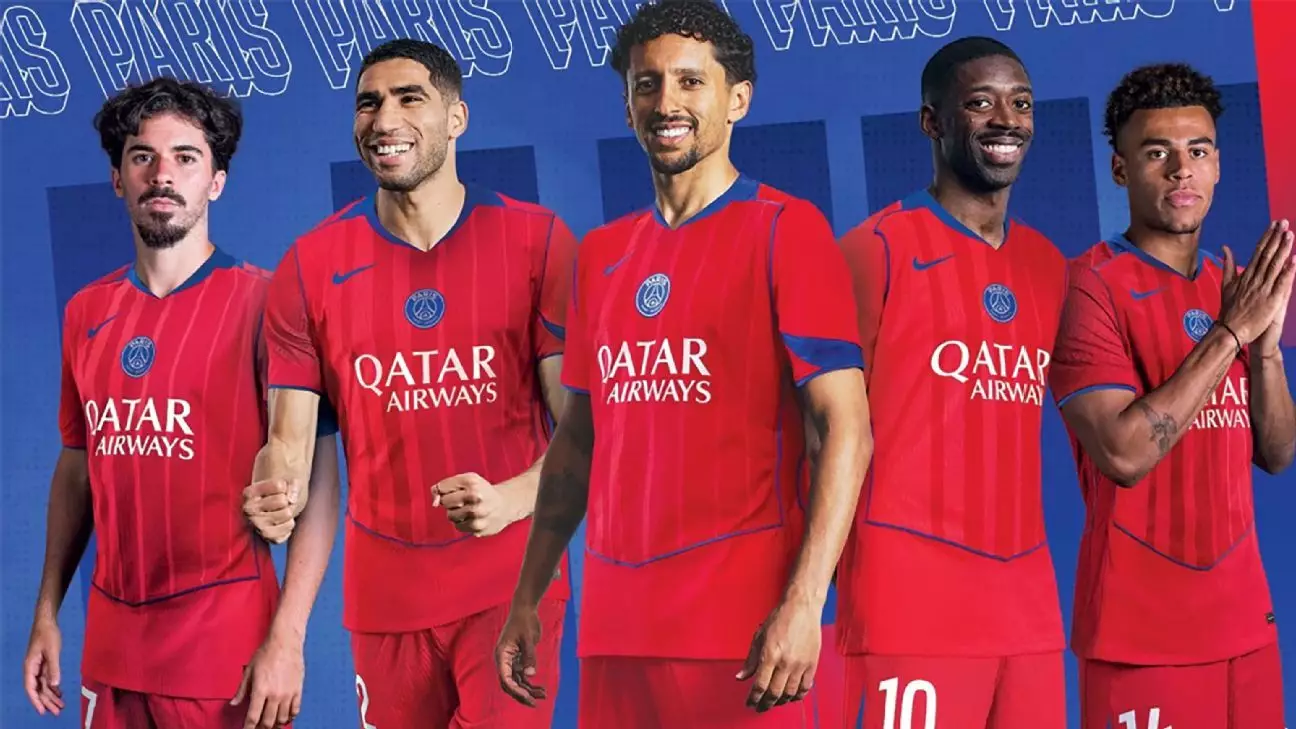Paris Saint-Germain’s decision to introduce a retro-inspired third kit for the 2025-26 season is more than a mere homage to the past; it’s a calculated move that taps into the deep well of football nostalgia. By revisiting the design elements of Nike’s iconic “Total 90” range, PSG underscores the importance of heritage in shaping a club’s identity amid a rapidly evolving football landscape. While contemporary kits often emphasize innovation and futuristic aesthetics, PSG’s retro throwback demonstrates a strategic balance—paying homage to golden eras while positioning the club as timeless and rooted in tradition. The choice to revisit the 2000s design aligns with a broader trend where clubs leverage nostalgia not just for marketing but for reconnecting with their fanbase’s collective memory.
Ashes of the Past, Vision of the Future
The design evoked by PSG’s new third kit is remarkably evocative of the early 2000s, capturing the essence of Nike’s “Total 90” template that dominated football gear for over a decade. However, this isn’t mere replication; it’s a reimagined homage that blends old-school motifs with contemporary detailing—such as gradient striping and vivid trim accents. This approach signifies a nuanced understanding of brand storytelling, allowing PSG to stand out amidst a crowded kit landscape where teams frequently revert to classic styles. The club’s subtle insertion of nods to its history—like the shield-shaped paneling and faux-winged collar—demonstrates a sophisticated appreciation for visual storytelling that resonates emotionally with dedicated fans who lived through those eras.
Strategic Nostalgia as a Brand Statement
Introducing a collector’s reissue of their 2004-05 home shirt further highlights PSG’s tactical use of nostalgia. Wearing the kit worn by notable players like Pauleta and Mario Yepes decades ago, the club positions itself as a custodian of its storied past. Yet, this isn’t purely sentimental; it’s a calculated branding exercise aimed at creating a multifaceted identity—one that celebrates its history while pushing forward. In an era where clubs grapple with proving their relevance across generations, PSG’s fusion of past and present communicates resilience and adaptability, reinforcing their status as one of Europe’s elite. Such initiatives can foster stronger loyalty, especially when fans see the club valuing its roots amidst ongoing ambitions for success.
Nostalgia as a Power Move in the Business of Football
The release of kits steeped in early 2000s design principles underscores a profound understanding of football’s cultural zeitgeist. It is a reminder that in a sport driven heavily by marketing and global fan engagement, nostalgia wields power—an emotion that transcends age and geography. PSG’s retro kits aren’t just fashion statements; they are strategic tools designed to evoke fond memories, encouraging emotional investment in the club’s future endeavors. This move subtly signals that PSG recognizes the importance of storytelling in modern football—where identity, history, and emotional connection can often influence a club’s marketability more than just trophies. In essence, PSG’s bold departure into nostalgic territory is a testament to their innovative approach to brand evolution.

